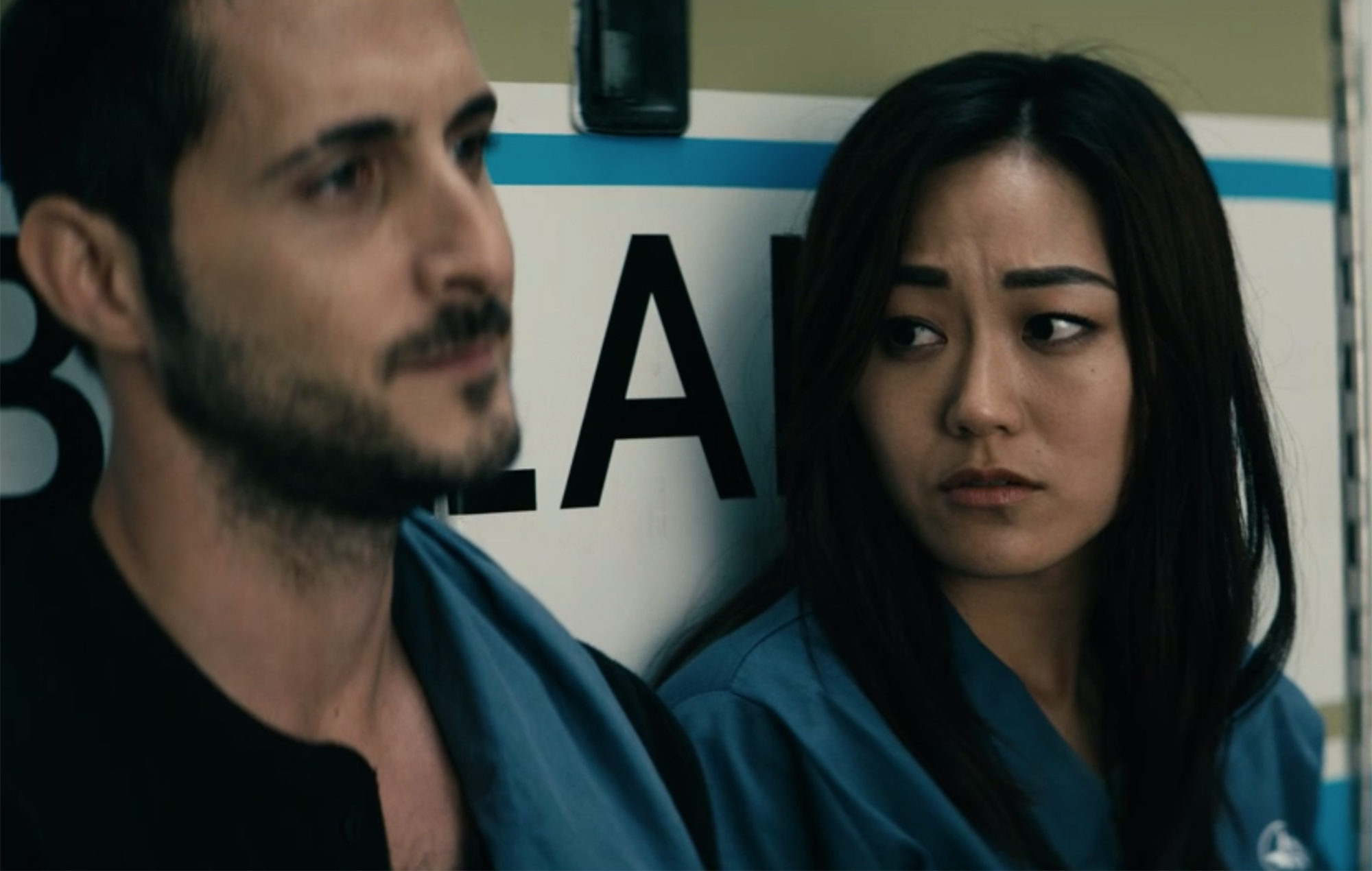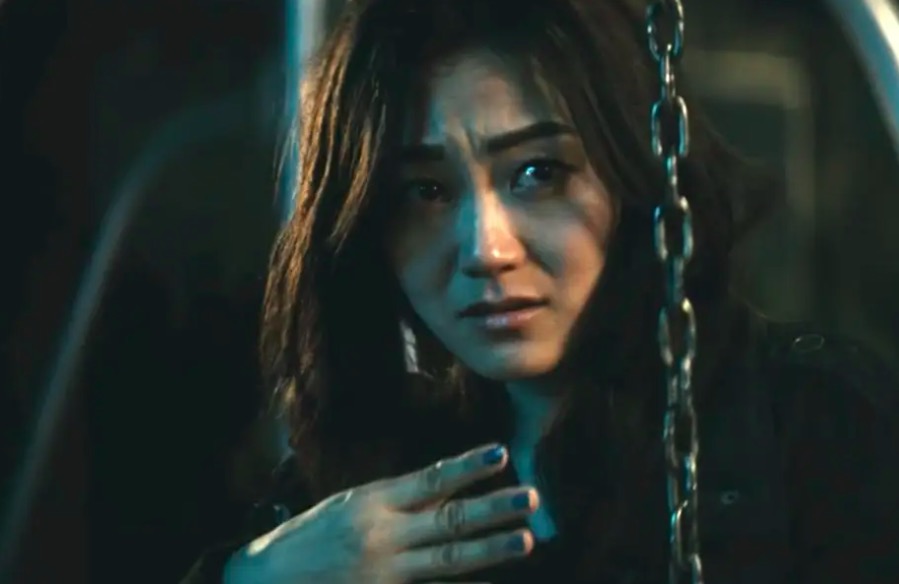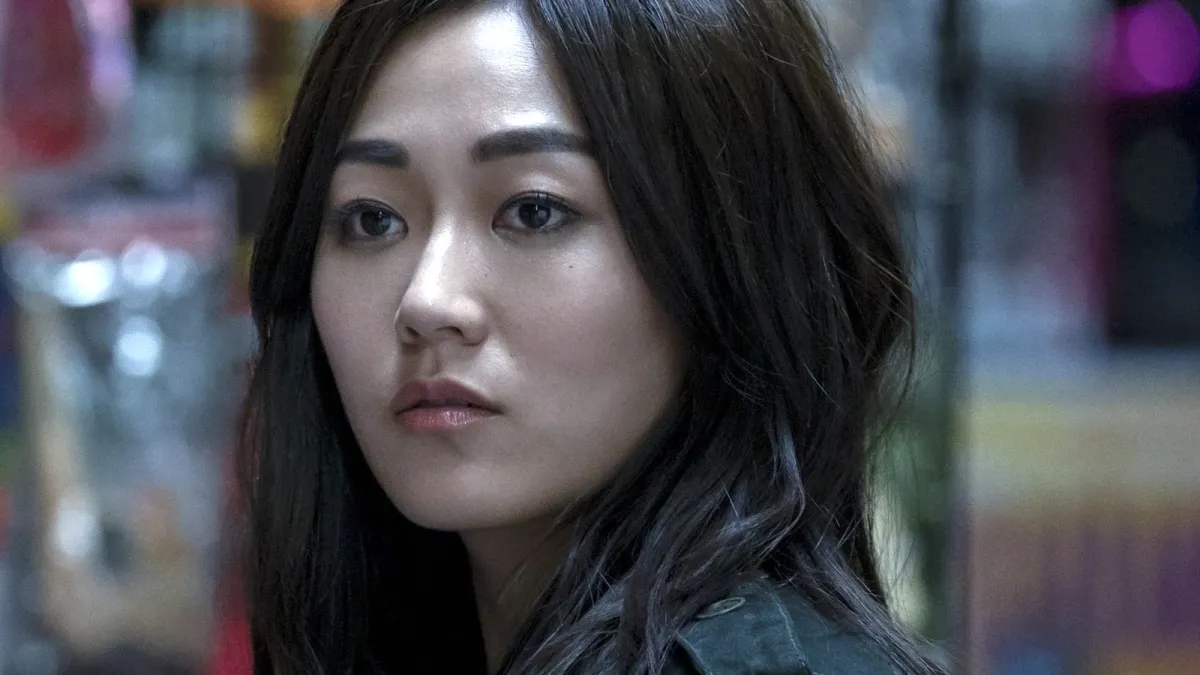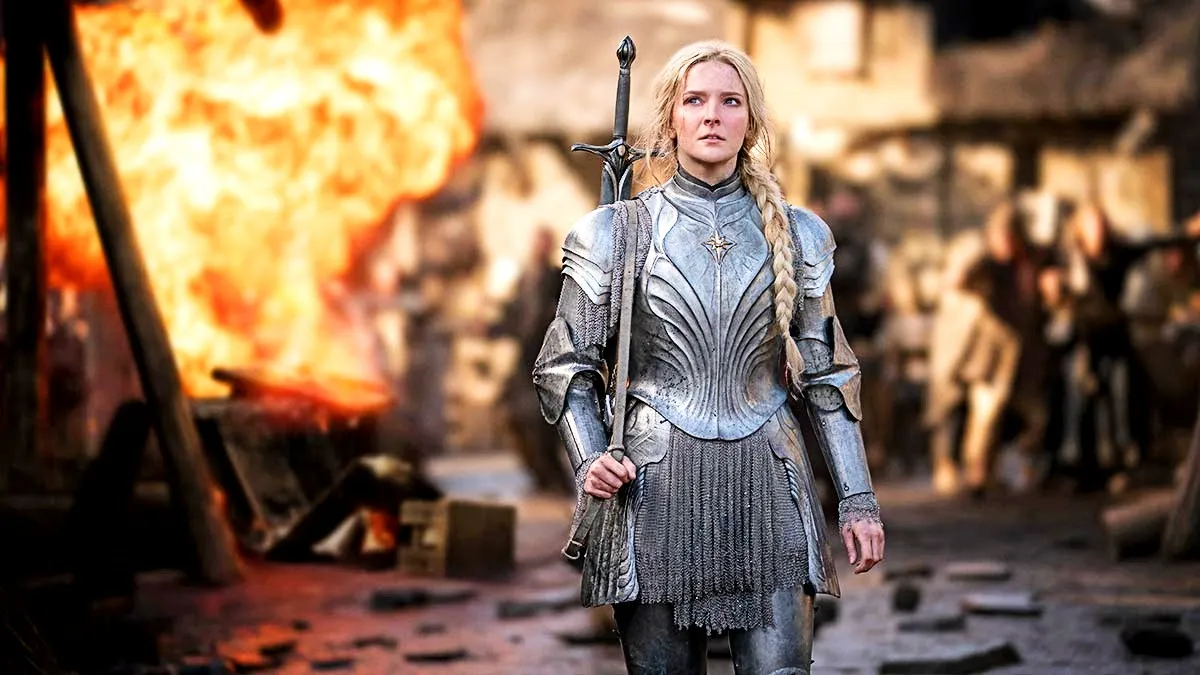*General plot spoiler warning for The Boys seasons 1&2.*
Kimiko Miyashiro has been largely nonverbal during her run on the first two seasons of Amazon’s subversive superhero series The Boys. Ahead of the season 2 premiere, showrunner Eric Kripke stated in an interview with Digital Spy that he wished he could have given Kimiko more of a voice in the show’s first season. “There’s the stereotype of a quiet Asian woman, and I was very conscious of not wanting to do that.”
Kripke’s efforts to subvert stereotypes have been noticeable from the very beginning. The broader catalogue of fully developed Asian characters in Hollywood, let alone specifically Japanese ones, is mostly barren. As a Japanese woman, I can comfortably say that Kimiko Miyashiro is a revolutionary character, but I can also say that the time has come for her character to begin speaking verbally.
My first introduction to The Boys as a series was when I attended New York Comic Con in 2018, which was its first major promotional appearance. I was unfamiliar with the source material, the comics written by Garth Ennis, but quickly recognized several names listed among the talent set to appear. There was the showrunner Eric Kripe, cast members including Karl Urban, Antony Starr, Chace Crawford, and most important of all to me, Karen Fukuhara.
As a fan of Fukuhara’s performance in Suicide Squad, I was excited to find out this up-and-coming Japanese actress was part of the cast of a new superhero series with many established names. A quick skim of Wikipedia dimmed my excitement, as I learned that her character in the comics was named “The Female” and she didn’t speak. It had all the makings of the racialized misogyny I was accustomed to seeing for East Asian women in Hollywood.
What reinvigorated my anticipation for the show was Fukuhara herself. During the show’s panel, Fukuhara happily shared that her character would be getting a name, which she understandably kept secret for the sake of spoilers. This alteration might seem insignificant in the grand scheme of things, but it was a foreshadowing of the considerable effort that would be made to develop her character beyond the source material.
After Eric Kripke shared in that Digital Spy interview how he felt he needed to do better for Kimiko than he did in season one, Fukuhara was asked about his comments in her own interview with Digital Spy. Much of what she said reiterated the significance of her character in season one, but there is another important detail she noted: “I mean she is this silent killer, she’s pretty badass in the comics but nobody really knows why she does what she does and there’s no reasoning behind why she’s so violent.”
Eric Kripke did not improve Kimiko’s story simply by giving her a name. He made her into a three-dimensional, nuanced, complicated person beyond the flatness of her character in the source material. When viewers are first introduced to her, she is being held captive in the basement of a building The Boys break into while following leads on Compound V. She is locked in a cell and spotted by Frenchie, who decides to release her.

Frenchie is a character whose past trauma mirrors Kimiko’s enough for him to understand her motivations, despite her apparent inability to express herself verbally. From his childhood experience of repeatedly trying to run away from an abusive father to get back to his mother, Frenchie intuits that she wants to go home and that she isn’t a bad person. While the other members of The Boys see a powerful, violent being that can and does destroy her enemies with her bare hands, Frenchie sees a woman who has been deeply hurt and is acting out of fear. Butcher’s bigotry against Supes (superpowered beings) makes him distrustful of Kimiko and want to leave her behind on more than one occasion. Frenchie’s unwavering belief in the goodness of her character makes him her strongest ally.
Kimiko is an important character for the development of the first season’s plot. It is revealed that she was not born with superpowers but was forcibly given them by way of Compound V while fighting for a terrorist group, the Shining Light Liberation Army, that murdered her parents and kidnapped both her and her brother. However, in the show’s first season, Kimiko doesn’t exist purely to move along the plot developments about Compound V.
As Fukuhara stated, the comics did not give information about her motivations and backstory the way the television series has. Fukuhara does incredible work emoting the wide range of Kimiko’s feelings. She is a superpowered fighter and killer, but she is not an angry, violent dragon lady stereotype. There is a compelling romantic chemistry between her and Frenchie, but she isn’t a romantic object interlaced with racialized misogyny. She experiences violence and has a lot of trauma to work through, but so do multiple other lead characters in the ensemble. Under a lesser showrunner, Kimiko may not have had this well-roundedness as a character.
Throughout the first season, Kimiko’s story had range. From the powerful brutality of her killing skills to the soft domesticity of learning to bake with Frenchie, it was evident that tremendous thought and care had been put into developing her character arc. The greatest indication that things had only just begun for her came in the season finale, when she had some time to herself in a bathroom. While doing a bit of self-care and personal grooming (new hair, nails, clothes), Kimiko looked at her reflection, touched her throat, and attempted to speak. Only a raspy huff could be heard, but it was a clear indication that Kimiko was on the path to getting her voice back, both literally and figuratively.
For the season 2 premiere, the first three episodes of the season were released. It was evident that the creators behind the scenes had put even more effort into giving Kimiko development. This was most noticeable through the introduction of her own sign language and the seasonal arc of her relationship with Frenchie.
Fukuhara worked with sign language coach Amanda Richer, who also worked on Guillermo Del Toro’s The Shape of Water for lead actress Sally Hawkins. Given Kimiko’s backstory of being kidnapped by a terrorist organization, it wouldn’t have made sense for her to know a preexisting sign language. Kimiko developed a trauma-induced silence after her parents were killed. She and her brother Kenji created their own sign language to help them cope with their pain and survive the hardships of the camps.

In an interview with Insider, Fukuhara spoke about developing a deeper appreciation for the power of sign language through portraying this development of her season two arc and working with Richer: “That helped me gain insight on what it’s like to live in this society that doesn’t really cater to people that have disabilities and feeling like the ‘other’ person.”
Just because Kimiko spent two seasons without speaking verbally doesn’t mean she lacked agency or the ability to express herself as a character. In season one, she chose to come back and save Frenchie from Black Noir. She chose to share more details about her origins, through Mesmer’s superpowers, so that The Boys would better understand how she never had a choice when it came to working for a terrorist group and gaining superpowers.
In season two, Kimiko has a significant increase in dialogue, albeit through this specially created sign language. Questions are answered about her personal history and her relationships. She is reunited with her brother Kenji, before he is killed by Stormfront. She copes with her grief and guilt by becoming a contract killer, leading to a rift in her relationship with Frenchie for the first time. Their reconciliation comes after Kimiko discovers that Frenchie is harboring his own guilt over the deaths of others. This separation is important because it allows both of them to process and learn to better understand their respective traumas without being codependent on one another to achieve self-improvement.
Kimiko is the only lead Asian character on The Boys, and one of the only Japanese female leads to have reached the prominence she now has in pop culture and superhero media. In a media landscape where Asian women are consistently given a reduced amount of dialogue and roles in general, her importance cannot be ignored.
In the season two finale, she laughs out loud at Stormfront before unleashing a fury of violence against her to get revenge for her brother. This shows in no uncertain terms that Kimiko still has a physically functional voice. Asian women are far too frequently depicted in stereotypical ways, including being submissive or voiceless. Kimiko’s silence and her journey to move past it don’t have to fall into that trope. The key to subverting that trope is for her to begin verbally speaking again. This development in her story can offer hope to victims of trauma that they can overcome the most arduous parts of their recovery, and to Japanese and Asian viewers that they can be the strong and powerful heroes of their lives.
(images: Amazon)
Want more stories like this? Become a subscriber and support the site!
—The Mary Sue has a strict comment policy that forbids, but is not limited to, personal insults toward anyone, hate speech, and trolling.—










Published: Jul 8, 2021 05:38 pm